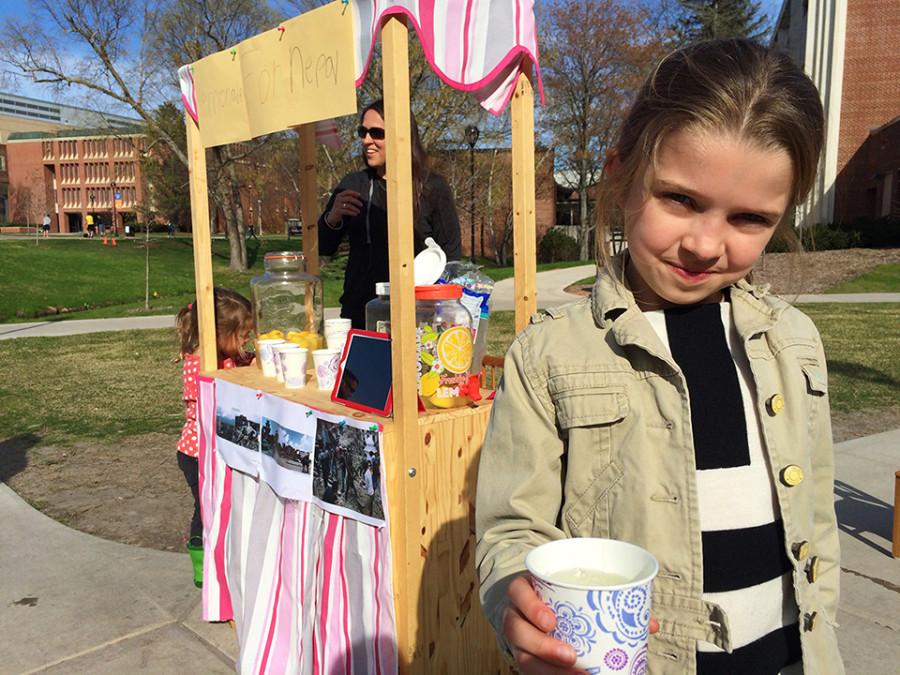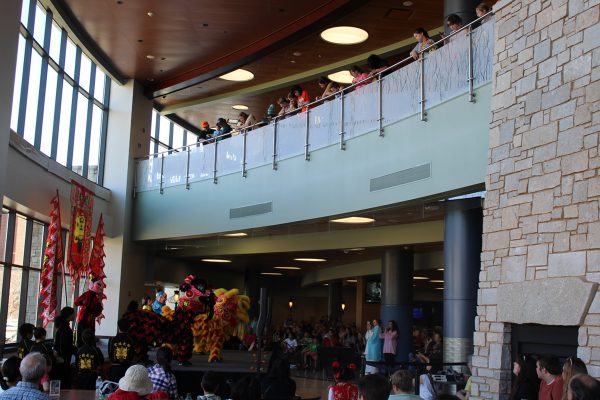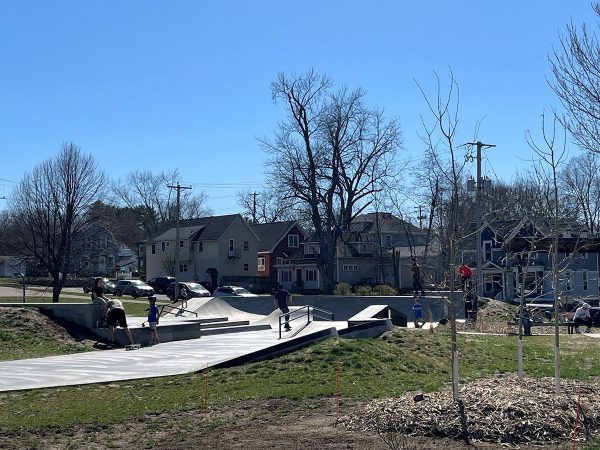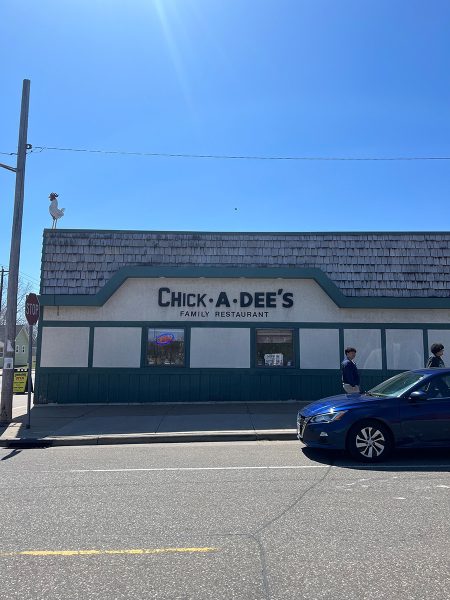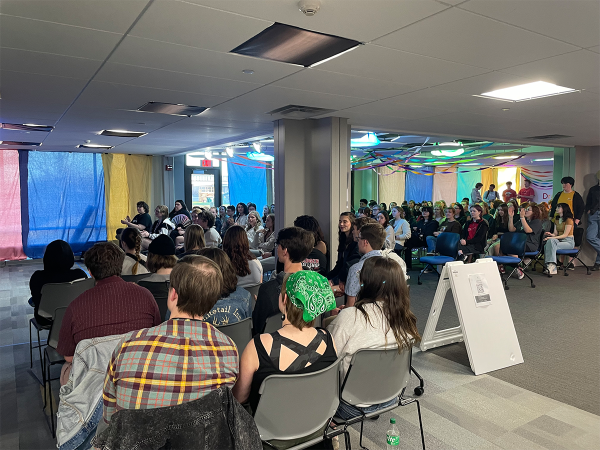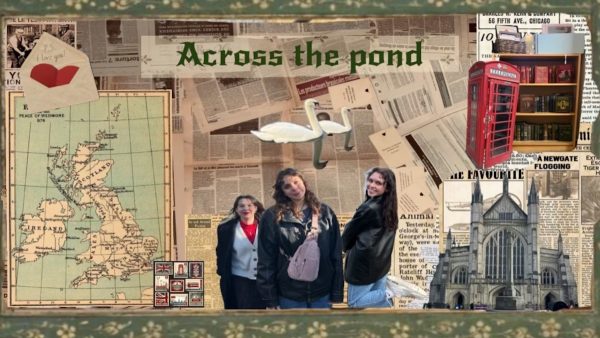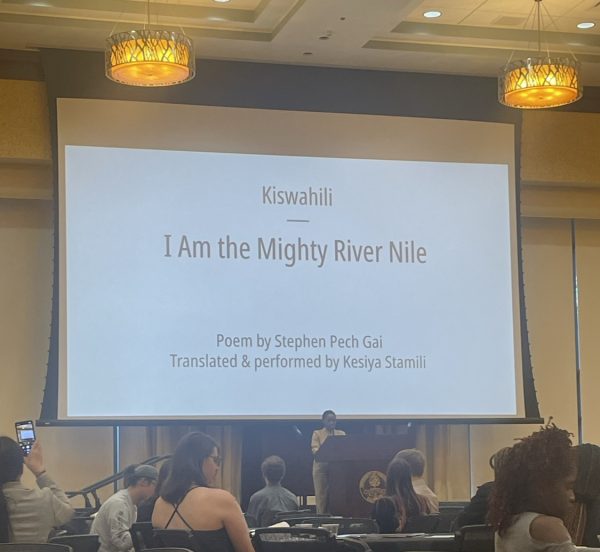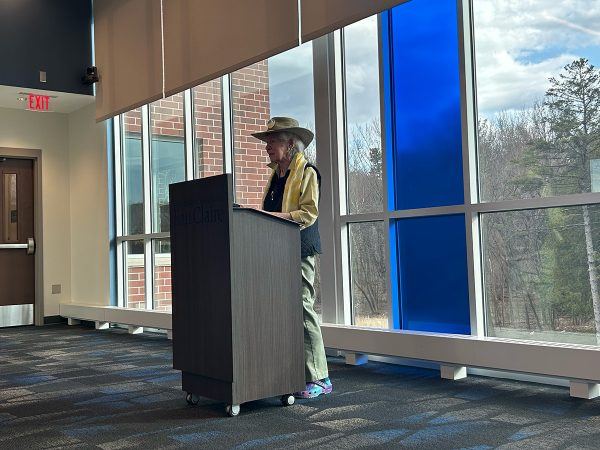Lemonade for Nepal
Two faculty members and their three children quenched thirst and raised money for earthquake victims
Photo by Anna Mateffy
Sophia Lopez offered lemonade to passersby in exchange for a donation to the Nepali earthquake victims.
May 6, 2015
Thursday afternoon, three blonde-headed children periodically smiled up at students and faculty outside Davies Student Center.
Sophia Lopez, 8, stood behind a wooden lemonade stand arranging plastic cups full of the sweet drink. Her six-year-old brother, Dylan Lopez, filled more cups, first with a bit of ice and then a careful pour from the beverage dispenser’s spout. Isabel Lopez, 3, busied herself playing with the grass.
Their parents, Pamela Novak and Manuel Lopez, staff members in the philosophy and religious studies department, chatted with passers by, asking them if they would be kind enough to donate a few dollars to Nepali earthquake victims in exchange for a cup of lemonade.
Novak and Lopez lived in Nepal for six years. They traveled to the U.S. to have their oldest child, but returned to Nepal when Sophia was just four months old and stayed for another two years.
“We have a lot of friends that have been affected by (the Nepal earthquake),” Novak said.
The Nepal earthquake was the most powerful to strike since 1934, killing more than 7,000 people and injuring over 15,000 more with the aftershock.
Novak said she and her husband Lopez told their children about the disaster, also called the Gorkha earthquake, and the kids suggested a lemonade stand fundraiser.
All of the donations will be given to Educate the Children, an organization dedicated to bettering the lives of women and children in Nepal. After the earthquake, the organization launched a special relief and rebuilding fund. Novak said this fund is specialized to get supplies to the rural and harder to reach mountainous regions.
Junior Anne Sandell said it was already hard for the Nepali people living in these areas to get what they need.
The creative writing major took last semester off to hike to the base camp of Mount Everest, spending a month in Nepal.
Sandell and her party kept in touch with her tour guides in Nepal. The more tech-savvy guides sent messages detailing the destruction in the mountains. In one case, a wall of one of their hotels caved in on a room. Even before the earthquake, fixing a problem like this would be tough. It means hiring a porter to go down the mountain and carry new rocks and other heavy building materials back up, all on his or her back.
“The issue is … when you get off the plane in the mountains, that’s the last transportation you’ll see,” Sandell said. “To get anything to the mountains, you have to carry it.”
Now, people aren’t just asking for building materials, they’re asking for food and medicine.
She said the airplanes don’t have the technology to safely fly through the cloud cover over the mountains, some only outfitted with windshield wipers.
After spending time with her tour guides, she learned almost all of their income comes from tourists. People from around the world come to climb Mount Everest and need hotels to stay in and places to eat before and after their climbs. This means that without help from around the world, Nepal’s future looks bleak.
That’s where organizations like ETC come in to play. The little Eau Claire lemonade stand brought in just over $300 for the organization in only an hour and a half. With efforts like these, the Nepali people are a step closer to recovery.

